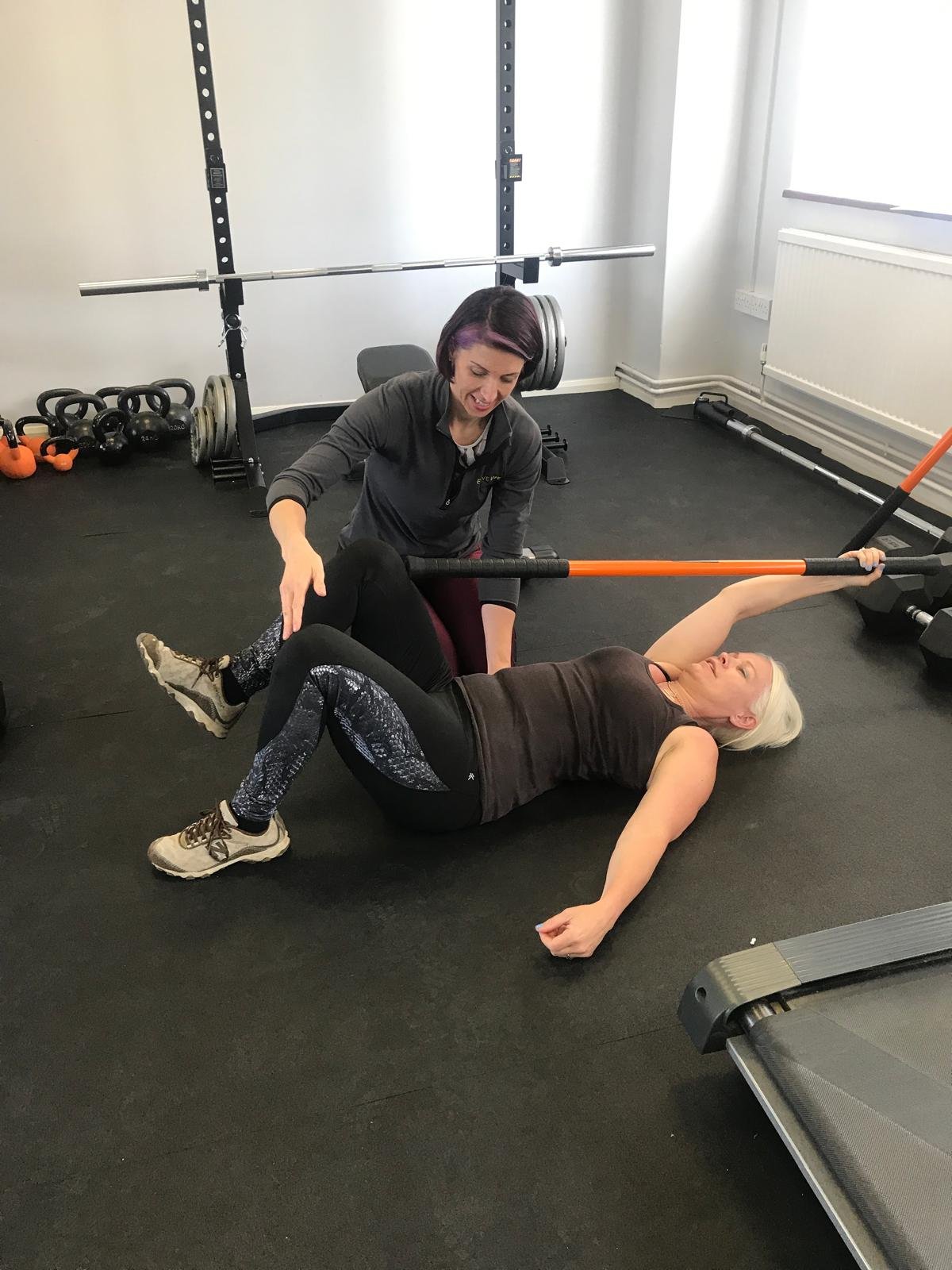
Pain & Injury Exercise Rehabilitation
Pain commonly hinders people's engagement in physical activity. It can prevent people from being active, working, or feeling safe to move in their everyday life.
Often, people lose the confidence to engage in activities that provoke pain, impacting their ability to do the things in life that they value. For many people with pain, exercise and movement can become fearful, leading to activity avoidance.
Current research indicates that avoiding movement can lead to weakness, vulnerability, and disability, whereas regular exercise reduces pain and recurrence, benefiting muscles, joints, nerves, and spine health. “Increasingly, many people's lifestyles are putting them at risk for chronic health conditions such as back pain, arthritis, low bone density, loss of balance and coordination, fatigue, poor sleep, cardiovascular disease, respiratory problems, incontinence, certain cancers, and mental health issues.
Exercise rehabilitation can help.
There is good evidence available showing that engaging in regular exercise and physical activity can help all these conditions and more. Exercise is one of the few treatments consistently recommended across multiple clinical guidelines for various health conditions. However, moving and exercising can exacerbate symptoms of these conditions, often creating barriers to physical activity and leading to fear of movement for many.
At Evolve Life Pain & Injury Clinic, we collaborate with our clients to build programs tailored to their conditions, needs, goals, and lifestyles.
We want to help you to
Understand your condition
Identify the barriers for you to engage in movement and physical activity
Identify the right type and dose of exercise to suit you
Build your program gradually to enable you to reach your goals
Providing strategies aligned with the latest research to improve health.
When is Exercise Rehabilitation needed?
Exercise and physical activity are among the most important things a person can do for their health. Exercise rehabilitation is beneficial for people that are de-conditioned following an injury, disuse or due to a sedentary lifestyle, or when pain is provoked by, or acts a barrier for people to engage in normal movement, activities of daily living, work and or physical activity.
Pain is a common barrier for people to engage in physical activity, be active, return to work, or simply feel safe to move in everyday life. This can result in people losing confidence to engage in pain provoking activities, impacting on their ability to do the things in life that they value. For many people with pain, exercise and movement can become scary, leading to activity avoidance. However, research tells us that avoidance of movement and activity can make us weak, vulnerable and disabled, while regular exercise helps to reduce pain, disability, pain recurrence and is important for the health of the muscles, joints, nerves and spine.
Furthermore, exercise rehabilitation can also help people with incontinence, poor balance and coordination, chronic fatigue, low bone density and poor general and mental health problems.
The Benefits of regular exercise.
Regular exercise when delivered in the adequate dose and duration can have the following benefits:
Increases confidence in your body
Reduces pain
Reduces disability
Reduces the need for medication and in many cases surgery
Reduces inflammation in the body
Improves surgical outcomes
Relaxes the muscles and increases natural pain killers to help control pain
Increases muscle strength, flexibility, endurance and stamina
Helps with weight control
Helps to improve sleep quality
Reduces fatigue, tiredness and increases energy levels
Reduces stress, depression and anxiety, all of which can aggravate pain and tension
Strengthens your immune system and overall general health
It also positively impacts on a person’s balance, bone health, immune system, cardio-vascular system and mental health.
